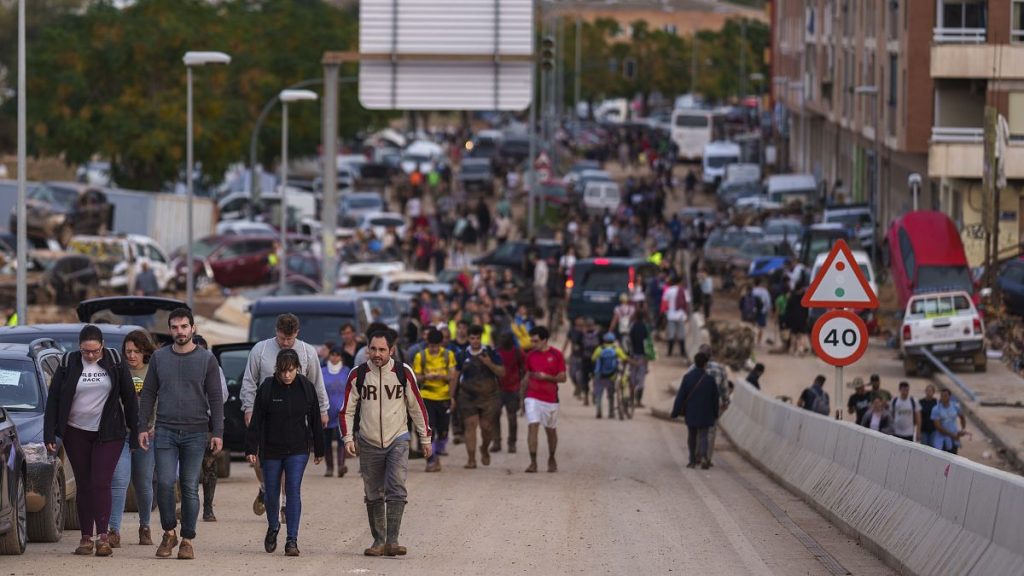Torrential rain and hailstorms in Spain caused extensive flooding, resulting in the deaths of at least 205 people across various regions, with the hardest-hit being Valencia. The flooding was described as the worst natural disaster in decades, with streets turning into rivers and homes being destroyed. The aftermath resembled that of a major hurricane or tsunami, with hundreds of soldiers deployed to assist in rescue efforts. Many communities are still inaccessible, raising concerns that the death toll may increase as authorities continue to search for bodies and survivors.
Volunteers from across Spain have mobilized to help in clean-up operations in the flood-hit areas, bringing essential supplies such as water, shovels, and brooms. This wave of solidarity has seen hundreds of people arriving on foot to offer assistance, leading to authorities asking them not to drive or walk to avoid blocking roads needed by emergency services. While the presence of volunteers has been vital in filling the void left by overwhelmed authorities, there is anger among affected residents who feel they have not received enough support from local authorities or emergency services in the wake of the disaster.
The massive death toll from the floods has raised questions about how such a catastrophic event could occur in a European Union country known for its public safety standards. Some opposition lawmakers have criticized the central government for delays in warning people about the floods and deploying rescue teams. The regional government in Valencia has been under fire for not sending out flood warnings via mobile phones until several hours after some towns and villages had already been flooded. This lack of preparedness has led to further frustration among residents who feel abandoned in the face of such a devastating disaster.
As the clean-up and recovery efforts continue in the flood-affected areas, the national weather service has issued amber rainfall warnings for regions in Valencia and Castellón that are still at risk of flooding. While the forecast does not predict rainfall as heavy as that which caused the initial flooding, there is a concern that the saturated ground could lead to further flooding. The deployment of additional troops to assist in the search for bodies and survivors is ongoing, as many areas remain inaccessible, adding to the challenges faced by authorities and emergency workers.
Authorities in Spain have been overwhelmed by the scale of the disaster, with survivors relying on the goodwill of volunteers who have stepped in to assist. The response to the floods has showcased the solidarity and resilience of the Spanish people in the face of adversity, with many individuals dedicating their time and resources to help those in need. While the death toll continues to rise and the full extent of the damage is still being assessed, the coming days and weeks will be critical in the recovery process for the affected communities. The lessons learned from this disaster will undoubtedly influence future preparedness and response efforts to ensure the safety and well-being of all citizens in the event of similar natural disasters.


